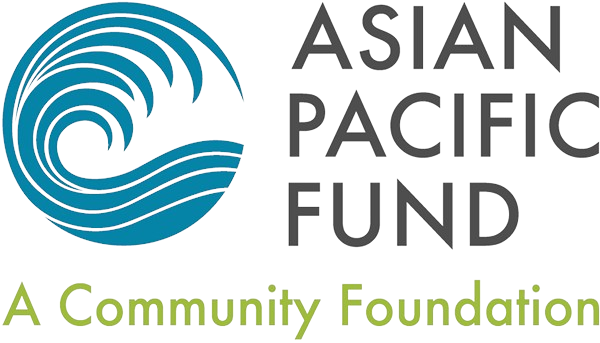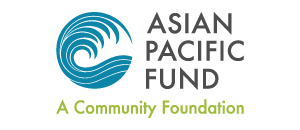Pride Month Spotlight: Lavender Phoenix
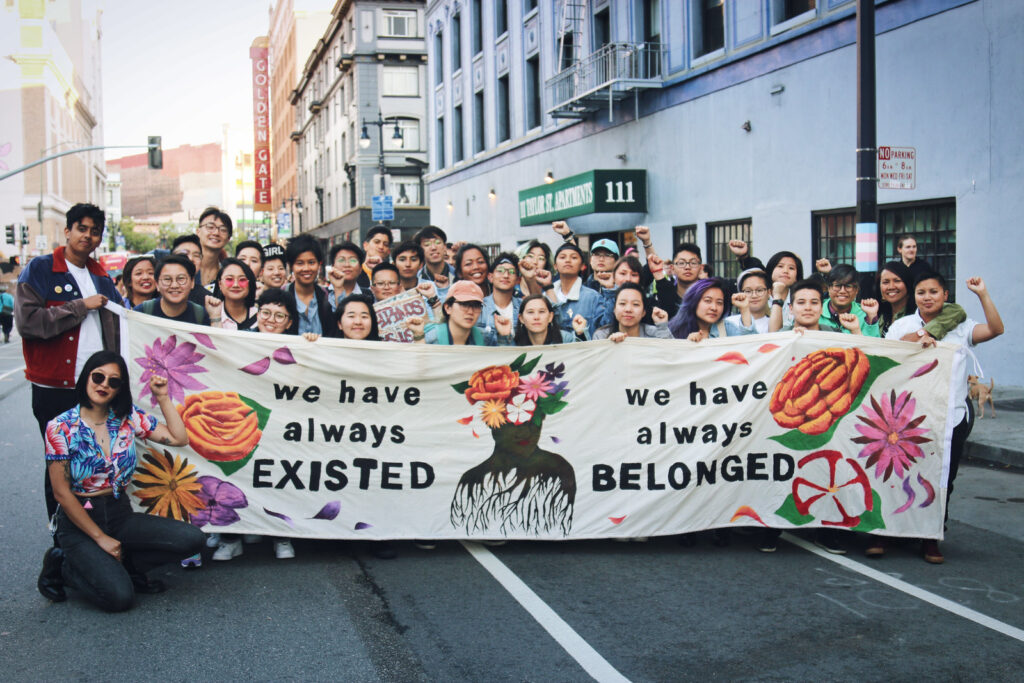
In celebration of Pride Month, the Asian Pacific Fund is shining the spotlight on some of our Asian and Pacific Islander (API) LGBTQIA+ community-serving partners. This week, we joined Yuan Wang (she/they), Executive Director of Lavender Phoenix (LavNix), to learn more about how the organization is working to build transgender, non-binary, and queer API power.
How did Lavender Phoenix start?
Lavender Phoenix (initially named the Asian Pacific American Coalition for Equality (APACE), then API Equality, and then APIENC)was formed in 2004 as a response to a 6,000-person rally to attack marriage equality held by Chinese Christian leaders in San Francisco. We came out in a time in which our community wanted to feel safe, affirmed, and validated in our homes, with our families, and in our bodies. Since then, our need to be safe and affirmed has not changed, but our tactics and strategies have shifted to best meet the needs of transgender, non-binary, and queer API people in the Bay Area.
What programs does Lavender Phoenix implement to support those needs?
We are creating alternatives—real solutions—that are centered in our communities, build self-determination, and promote healing and restoration for the land and the people. All our programs are led by transgender and queer Asians and Pacific Islanders (TQAPIs) members who are directly impacted by the issues we address. Our core programs include Leadership Development, Community Safety, Healing & Care, Ecological Justice, and Movement Building.
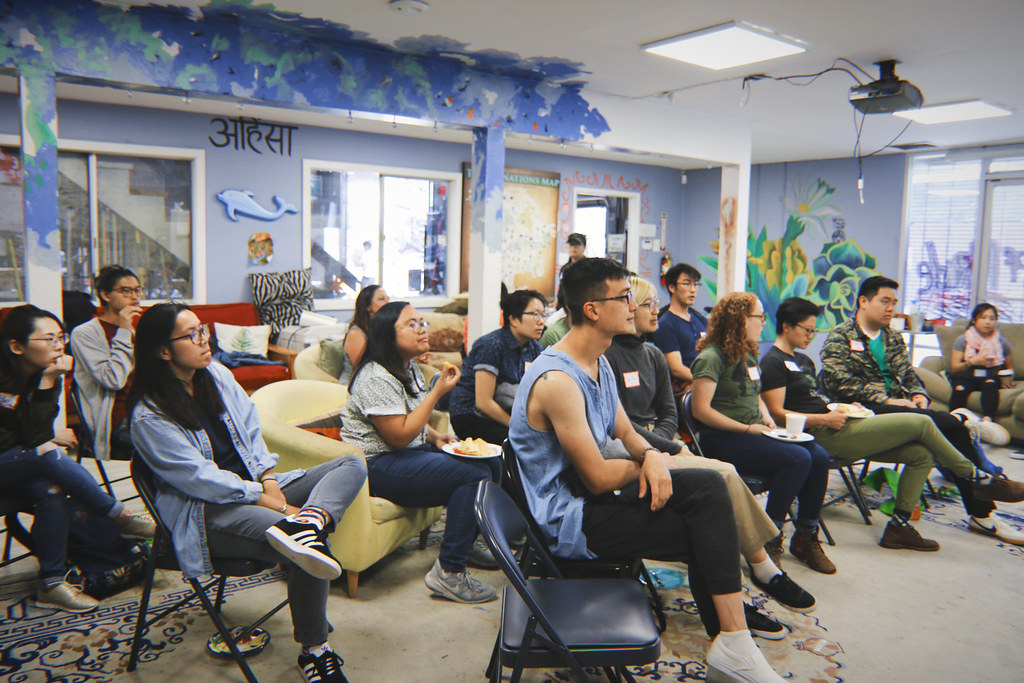
What has been the most interesting or challenging aspect of Lavender Phoenix’s work?
The most challenging—but critical—part of LavNix’s work is sustaining our connections and motivation through crisis after crisis. These last few years of the pandemic, for example, have only heightened an existing crisis of isolation among trans and queer APIs. So many of our staff and members face that isolation firsthand in our own lives and in our relationships, but we know it’s up to us to help transform it. Staff and members of our Healing Justice Committee launched a Trans API Peer Counseling Program to provide free mental health support to trans API people across the Bay Area. Through this, the committee has almost doubled in size, with folks seeking counseling joining the work and providing that care to future trans API people. Projects like this help remind us that trans and queer API people are powerful—not powerless—when organized and united.
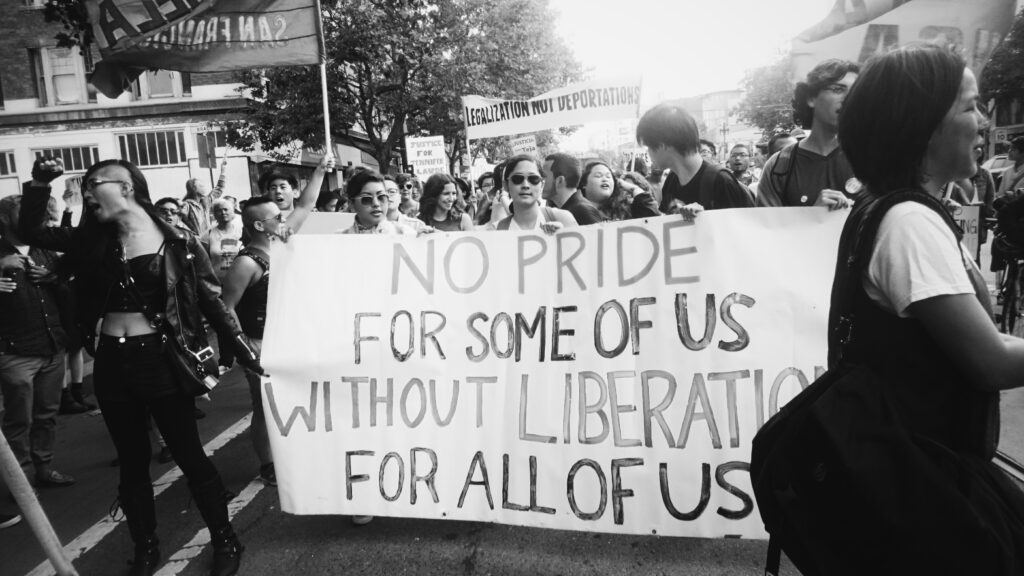
What’s the most important or gratifying thing about working for your community?
The most gratifying part of LavNix’s work is working directly with our members. I joined LavNix through our youth program years ago, and have firsthand experienced the impact of dedicated trans API mentorship. Our trans and queer API community members drive all of our work—from our Peer Counseling Program, to our trainings for new members, to our campaigns for community safety. Our focus on community leadership and fostering long-term connections to the work empowers us to combat widespread isolation and transform people and relationships, in addition to systems.
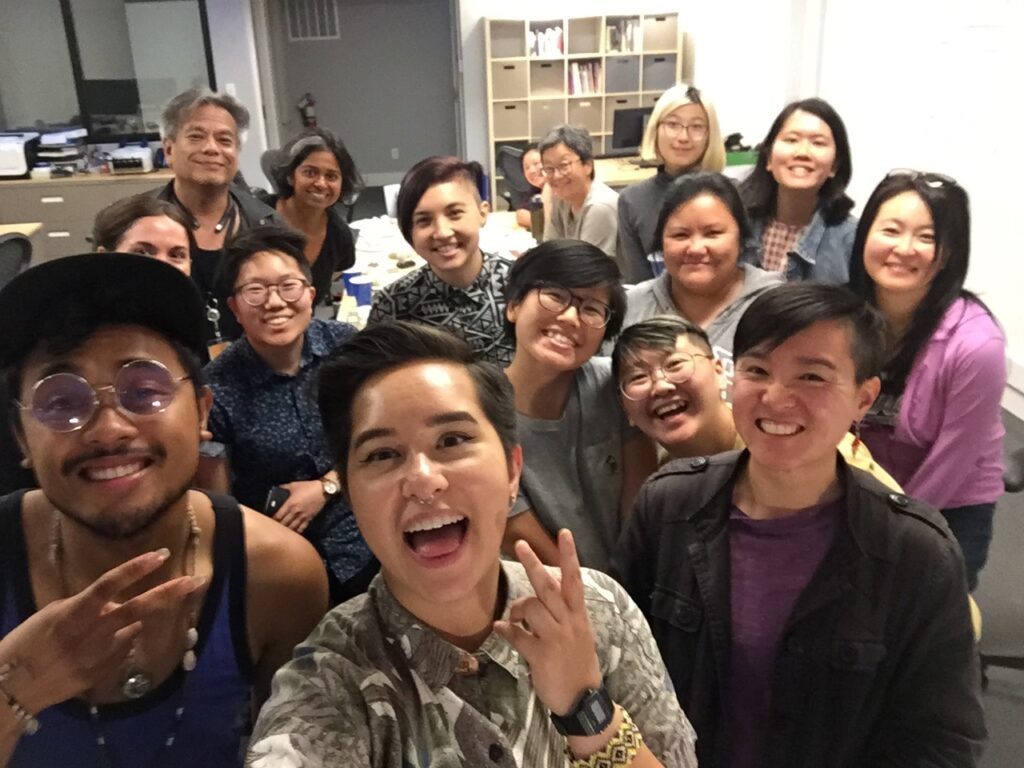
How can people get involved and support Lavender Phoenix’s work? Are there any volunteer opportunities?
For trans and queer APIs, the best way to get involved is to sign up on our volunteer interest form—that way, we can pair you with a part of our work that best fits your skills and interests. For everyone, including our allies and accomplices, you can follow our work on our Instagram, visit the Dragon Fruit Museum website to learn more about our histories, and donate to help sustain our work at lavenderphoenix.org/donate.
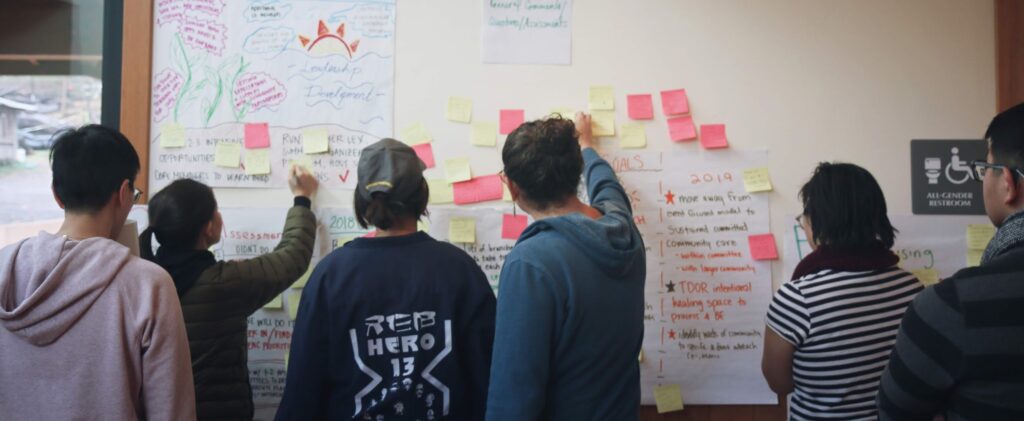
The Asian Pacific Fund, through our affiliate organization, the Chinese for Affirmative Action (CAA), has supported Lavender Phoenix in their work for the transgender and queer members of the API community and to build transgender, non-binary, and queer API power.
Learn more about Lavender Phoenix’s work and how to get involved by visiting their website: https://lavenderphoenix.org/.
